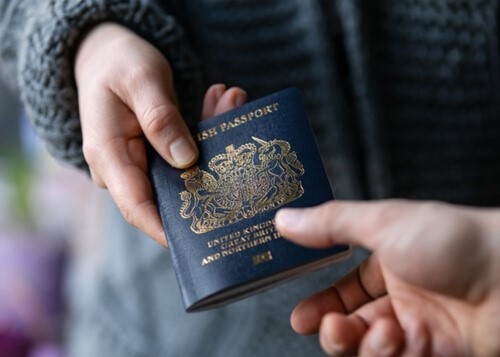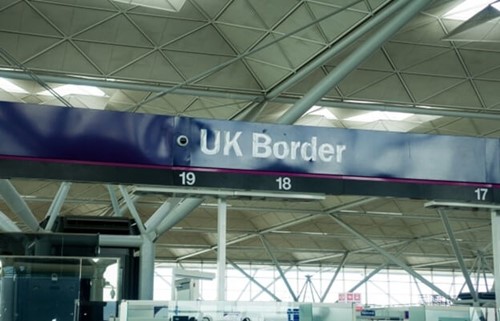It’s important for employers to make sure they are staying on top of changes to employment law and any changes to their employee's right-to-work status.
Failing to perform right-to-work checks correctly could lead to one of your employees becoming illegal to work. You could soon find yourself in trouble and potentially criminally liable.
In this article, we will look at the factors employers must consider and provide a checklist of actions businesses should take before employing someone.
What is the right to work in the UK?
If you are a British or Irish citizen, you have the right to work in the UK and may not need a work permit or visa. Any potential employees who are trying to take employment in the UK, need to ensure that they obtain the right to work before starting work.
Individuals who are coming overseas will obtain the right to work during the immigration process.
The Different Types of Right-to-Work Checks
Understanding which of your employees has the right to work can be overwhelming and confusing. We’ve put together the different types of right-to-work to make understanding it a little easier.
Permanent right to work
A prospective employee might have the right to UK employment without restriction if they are:
- A British or Irish citizen.
- A European Economic Area (EEA) citizen or a Swiss national with Settled Status under the EU Settlement Scheme.
- Holders of Settlement / Indefinite Leave to Remain.
You must complete a right-to-work check, regardless of citizenship.
To do this, check their passport. he valid passport must state BRITISH CITIZEN on the picture page, to qualify for the right to work. This won’t apply to those with settled status.
Frontier Worker Permit
A frontier worker is an EU citizen who is employed or self-employed in the UK, but a resident elsewhere.
Individuals can apply for a frontier worker permit if they’re from the EU and:
- Live outside the UK.
- Started working in the UK on or before 31st December 2020 and continue to work here.
Frontier worker permits last for 5 years, and need to be renewed.
Time Limited Right to Work
Employees with a time-limited right to work might be able to undertake certain types of work, dependent on their permit.
Non-British or Irish Citizens must obtain one of these documents to work in the UK. This includes EEA citizens, or Swiss nationals who weren’t UK residents before 1 January 2021, and who don’t have a settled status under EUSS. Employers will need to conduct follow-up checks when their visa is due to expire.
Right to Work
Those without a permanent or time-limited right to work can apply for one of the following visas, although they may face some restrictions:
- Family members of an EEA National.
- Dependent of a Points-Based Migrant.
- UK Ancestry visa holders.
- T5 Youth Mobility visa holders.
- Global Talent Visa holders.
Non-British and Irish citizens that hold these valid visas can undertake a role in any industry, performing any role.
Restricted Right to Work
If applicants aren’t eligible for the above, they need to make an application through the immigration system. These visas will restrict the type of work they can undertake.
These include:
- Point-based system: For skilled workers who have a job offer from an approved employer sponsor.
- Global talent scheme: This route has been opened up for EU, EEA and Swiss Citizens
- International students and graduates: For students from the EU, EEA and Swiss Citizens. They can apply for a student visa if they
- Have been offered a course place.
- Can speak, read, write, and understand English.
- Have enough money to support themselves and pay the tuition.

What about existing employees?
If the employee is a British or Irish Citizen and you did a right-to-work check upon recruitment, you don’t need to perform a follow-up. However, if they have a temporary visa, employers should conduct right-to-work checks around the time of their document's expiry date.
How do I prevent illegal working?
If the employee fails their right to work check, you shouldn’t employ them until they have obtained it. This is the simplest way to avoid employing an illegal worker. Continuing to or employing an illegal worker could lead to your business receiving a civil penalty
Whatever the prospective worker's situation, the key to the right to work is evidence. If an employee is struggling with the home office online service, support them and offer guidance.
Required evidence of the right to work
When completing a right-to-work check there are certain documents that you need to see and retain a copy of. The Home Office has published two lists of acceptable documents that prove an individual's right to work.
List A is for employees who have a permanent right to work. Such as:
- British passport holders.
- Individuals with Indefinite leave to remain.
- Biometric Residence Permit (BRP) holders.
- Settlers under the EU settlement scheme.
If the staff member has a BRP you are not allowed to accept a hard copy. Instead, you can ask for the share code that can be checked through the government's website. Applicants from the EU or Swiss nationals who have settled or pre-settled need to provide evidence through the Home Office online system.
List B is for a person who’s right to work is time limited. You will need to perform follow-up checks to ensure that their documents, visas and work permits are still valid.
With any employee falling into this category you will need to ensure that you are remaining legally compliant and keep a copy of their right-to-work evidence on file. Along with the following other documents (if needed):
- A positive verification note was issued by UK Visa and Immigration.
- A certification of application to non-EEA family members or EEA nationals/ Switzerland that is less than 6 months old.
- An application registration card allowing employment.
Documents on these lists are acceptable documents for right to work checks. If you fail to get any of these and still employ the individual, you will risk severe penalties, criminal convictions and business closure.

Terminology explanation
As you are completing right-to-work checks on your employees. You may come across similar terms, but may not prove their right to work.
Biometric Information Documents
Biometric information (biometric details, for example, facial photograph and up to 10 fingerprints) is typically presented in one of three forms:
- A Biometric residence permit (BRP) (proves right to work)
- Online evidence of immigrations status (eVisa)
- A Biometric residence card (BRC) (proves the right to work)
Biometric Residence Permit
The main document you need to be aware of is the BRP. This term is sometimes used synonymously with BID. A BRP enables the holder to:
- Provide proof of immigration status in the UK
- Access the home office online portal to prove their right to work
- Share their right-to-work information with employers using their share code.
A BRP is valid for the duration of the person’s limited leave or 10 years. BRPs are being phased out, newly issued BRPs have an expiry date no later than 31st December 2024.
If you want to guarantee the authenticity of a BRP, you can use an identity service provider (IDSP) that offers identity document validation technology (IDVT), such as TrustID and the employee’s share code.
Through the IDSP you can only check the right to work of British and Irish nationals.
Right-to-work checklist
Now you know who you can employ and the documents you need, let’s explore the process.
- Obtain the needed right-to-work documents.
- Check the original documents are genuine.
- Confirm that they are accurate and belong to the candidate.
- Confirm that they allow the candidate to perform the work you are offering.
- Make a clear copy of each document that cannot be manually altered.
- Retain a secure copy.
- Retain a copy of the date you made the above checks.
- Proceed with the recruitment process.
If you’re concerned about keeping sensitive documents secure, take a look at Croner’s software solutions.
Get help from Croner on Right to Work checks
Knowing which documents are valid forms of right to work in the UK, can help you avoid hiring illegal employees and face criminal convictions or a civil penalty.
How you approach this situation depends on your circumstances. Employment and immigration law is liable to change meaning your business needs to stay vigilant.
If you need further guidance, Croner can provide it. Whether you need help managing documentation, support through the recruitment process, or have questions, you can speak with one of our HR and employment law advisers on 0800 470 2755
Related resources
Categories
- Business Advice
- Culture & Performance
- Disciplinary & Grievances
- Dismissals & Conduct
- Employee Conduct
- Employment Contracts and Documentation
- Employment Law
- Employment Rights Bill
- End of Contract
- Equality & Discrimination
- Health & Safety
- Hiring and Managing
- Leave & Absence
- Managing Health & Safety
- Moving
- Occupational Health
- Pay & Benefits
- Recruitment
- Risk & Welfare




